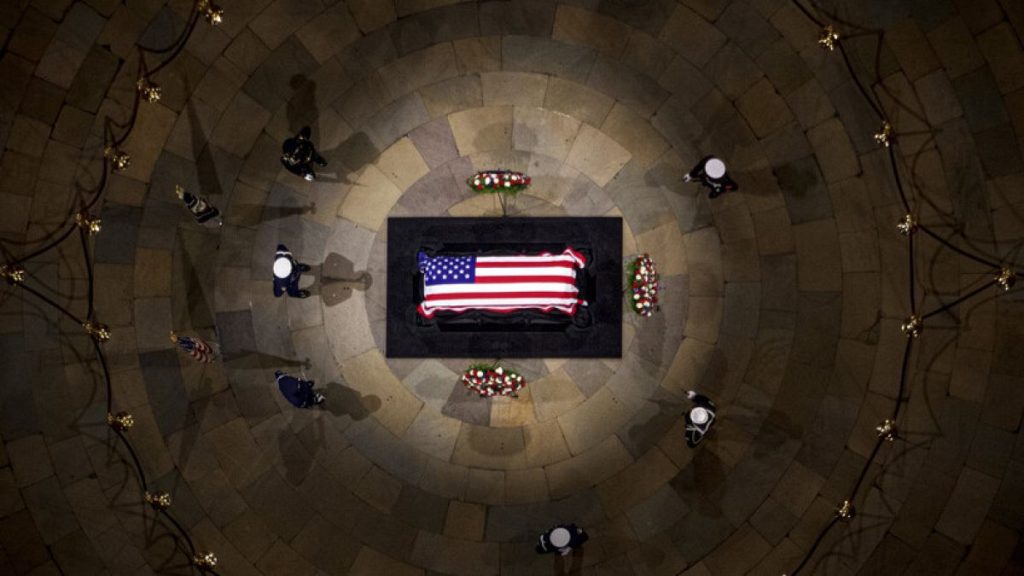Jimmy Carter, the 39th president of the United States, returned to Washington D.C. nearly 44 years after leaving office, not in political triumph, but in solemn repose. His journey back to the nation’s capital marked the commencement of three days of state funeral rites honoring a life dedicated to service, both to his country and to humanity. Carter’s remains, having lain in repose at the Carter Presidential Center in Atlanta, Georgia, since Saturday, were transported aboard Special Air Mission 39, accompanied by his family. Upon arrival at Joint Base Andrews in Maryland, a motorcade conveyed the casket to the Capitol, where a poignant ceremony unfolded, orchestrated by members of Congress.
Inside the Capitol Rotunda, a bipartisan gathering of congressional members, led by Senators Raphael Warnock and Jon Ossoff of Georgia, assembled to pay their respects. Vice President Kamala Harris, members of President Biden’s cabinet, and three Supreme Court justices were also in attendance. The somber atmosphere was punctuated by the measured strains of the US Army Band Brass Quintet. A hushed reverence descended as three knocks on the rotunda door signaled the arrival of the casket, which was then placed upon the Lincoln catafalque, the same platform that bore Abraham Lincoln’s remains in 1865.
Eulogies delivered by Vice President Harris, Senate Majority Leader John Thune, and House Speaker Mike Johnson painted a vivid portrait of Carter’s multifaceted life. They celebrated his unwavering faith, his notable accomplishments in office, his distinguished military service, and his enduring commitment to serving others. Thune highlighted Carter’s diverse roles, from Navy veteran and peanut farmer to governor and president, emphasizing his dedication to his faith and fellow man. Harris underscored Carter’s pioneering efforts in energy policy, particularly his support for clean energy, and his significant contributions to environmental protection, including expanding national parks.
Harris further emphasized Carter’s profound love for his country, his lived faith, and his legacy of making the world a better place. Johnson eloquently portrayed Carter’s dedication to humanity, extending beyond his well-known Habitat for Humanity work to encompass his efforts in providing lifesaving medicine, brokering peace in times of conflict, and championing equality in the face of discrimination. All speakers acknowledged Carter’s deep faith as the driving force behind his lifelong commitment to service.
The ceremonies in the Capitol Rotunda marked the beginning of a period of national mourning for the former president, who passed away on December 29, 2024, at the age of 100. Carter lay in state for two nights, allowing the public to pay their final respects. This solemn vigil offered an opportunity for reflection on the life and legacy of a man who dedicated himself to serving others. The lying in state tradition underscores the importance of honoring those who have held the highest office and contributed significantly to the nation’s history.
A state funeral, a formal ceremony reserved for individuals of national significance, was held at the Washington National Cathedral on Thursday. President Biden’s presence and eulogy further underscored the respect and admiration held for Carter across the political spectrum. This final tribute served as a powerful reminder of Carter’s impact on American society and his enduring contributions to the pursuit of peace and human rights worldwide. The state funeral provided a moment of national unity and remembrance, allowing the country to bid farewell to a leader who dedicated his life to service and left an indelible mark on the world.














